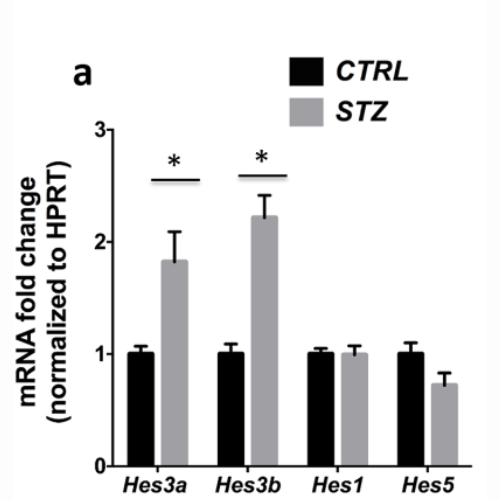Streptozotocin-induced β-cell damage, high fat diet, and metformin administration regulate Hes3 expression in the adult mouse brain.
Diabetes mellitus is a group of disorders characterized by prolonged high levels of circulating blood glucose. Type 1 diabetes is caused by decreased insulin production in the pancreas whereas type 2 diabetes may develop due to obesity and lack of exercise; it begins with insulin resistance whereby cells fail to respond properly to insulin and it may also progress to decreased insulin levels. The brain is an important target for insulin, and there is great interest in understanding how diabetes affects the brain. In addition to the direct effects of insulin on the brain, diabetes may also impact the brain through modulation of the inflammatory system. Here we investigate how perturbation of circulating insulin levels affects the expression of Hes3, a transcription factor expressed in neural stem and progenitor cells that is involved in tissue regeneration. Our data show that streptozotocin-induced β-cell damage, high fat diet, as well as metformin, a common type 2 diabetes medication, regulate Hes3 levels in the brain. This work suggests that Hes3 is a valuable biomarker helping to monitor the state of endogenous neural stem and progenitor cells in the context of diabetes mellitus.
Back to list
